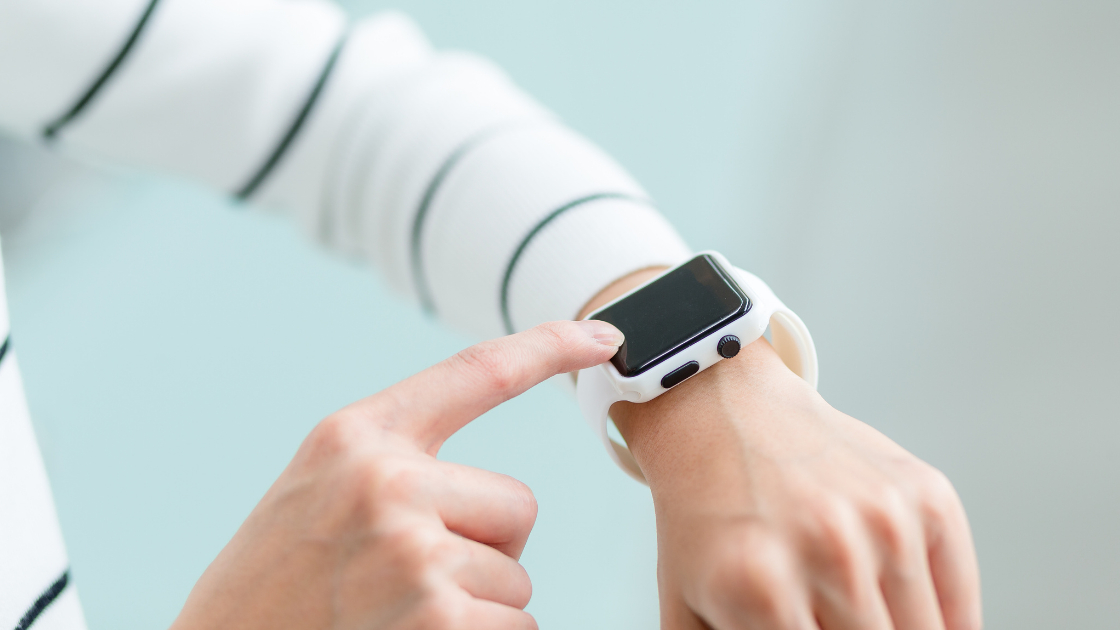Wearable technology has been a major trend for the past few years, but now it’s about to get even more widespread. In the past, wearable technology has been used to monitor people’s health, but now it’s being used in a new way.
Thanks to new developments in the field, wearables are now helping people manage their own health. This is an exciting time for healthcare professionals and patients alike as we look forward to what this new technology will do for our industry.
The new technology uses a combination of biometric data, such as heart rate, blood pressure, temperature and machine learning algorithms to predict when someone might be at risk of developing a disease or condition based on their lifestyle choices. The algorithm then alerts them so they can take action before it’s too late.
With the rapid advancement of wearable technology, the healthcare industry has been quick to embrace these devices for their potential to improve patient outcomes. From fitness trackers to smartwatches, wearables have become an integral part of modern healthcare, helping patients to better manage their health and providing clinicians with valuable insights into patient behavior and health metrics.
The Rise of Wearable Technology in Healthcare
Wearables have become increasingly popular in recent years due to their ability to track various health metrics, such as heart rate, steps taken, and sleep quality. This has led to the development of wearables specifically designed for healthcare, such as glucose monitors for diabetics and smart inhalers for asthma patients.
The rise of wearable technology has been driven by two factors: First, the explosion of smartwatches and fitness trackers that allow users to easily monitor their health metrics on a daily basis. Second, there has been an increase in demand for personalised health solutions that cater to an individual’s specific needs rather than one-size-fits-all treatments. As a result, many healthcare providers are now offering wearables as part of their treatment plans.
With so many people using wearable technology on a daily basis, it’s no surprise that the healthcare industry is starting to take notice. In fact, there are several ways that wearables can improve care for patients and providers alike.
Wearables can improve healthcare is by helping patients stay engaged in their own treatment plans. This can be particularly helpful for those who may need more assistance getting started on new medications or other therapies. By tracking various health metrics over time with a wearable device (such as blood glucose levels), patients will be better able to see how their bodies respond to different treatments and adjust accordingly. This is particularly useful for those who may be otherwise unable or unwilling to keep track of these details on their own (such as individuals with dementia).
Advantages of Wearable Technology for Patients
Wearables offer several benefits for patients, such as improved patient engagement and self-management. Patients can monitor their health metrics in real-time and use this data to make informed decisions about their health. Wearables can also help patients to stay motivated by providing feedback and rewards for achieving health goals.
Wearable technology is proving to be an effective tool for healthcare practitioners. Here are the top 5 advantages of wearable technology for patients:
- Wearing a device is not as invasive as undergoing surgery or taking medication, which makes it more appealing to patients who are wary of traditional medical treatments.
- Wearable technology can be used to monitor many different aspects of your health, including heart rate and blood pressure, which allows you to see how different activities affect your health.
- Wearable devices can also be used to track steps taken throughout the day or even sleep patterns so that you can see what kinds of habits might be affecting your overall health and wellness.
- Some wearables have GPS functionality that allows them to track where you’ve been during the day so that doctors can better understand how much time you spend sitting versus standing or moving around during any given period of time (and what kind of activity levels result in better overall health).
- Many wearables also have sensors that detect light exposure and temperature changes in real time so doctors can use this information when making decisions about treatment options and medications for their patients
Benefits of Wearables for Clinicians
Wearables are a great way for clinicians to get more information about their patients’ health and behavior. Wearables can provide clinicians with valuable data on patient behavior and health metrics. This can help clinicians to make more informed decisions about patient care, such as adjusting medication dosages based on real-time health data. Wearables can also help clinicians to identify potential health issues before they become serious, leading to better patient outcomes.
Wearables are the new black.
And for good reason. These little gadgets can do a lot for you, especially if you’re a clinician. Here are some ways wearables can help you in your day-to-day life as a doctor or other medical professional:
- They’ll keep track of your sleep patterns and how much restorative sleep you’re getting every night. This will help ensure that you don’t get too tired during the day, which can lead to errors in diagnosis or treatment.
- Wearable technology will remind you when to take breaks so that you don’t become fatigued while on duty. By keeping track of your heart rate and other health indicators, they’ll be able to offer gentle reminders when it’s time for a break so that you don’t have to worry about forgetting or missing one
- Wearables will remind you when it’s time to take your medicine (and even send alerts if there are any problems with the dosage). This is especially useful if you’re dealing with chronic conditions like diabetes or high blood pressure, it can help keep those numbers under control and prevent serious complications later on down the road
Wearable tech coincides with major Healthcare Progress
Wearable technology is becoming increasingly prevalent in our daily lives, from fitness trackers to smartwatches to health monitoring devices. As these technologies continue to improve, they are also changing the way we approach healthcare.
One of the most significant advances in healthcare that has coincided with the widespread use of wearable technology is the shift towards personalized medicine. Personalized medicine involves tailoring medical treatment and care to each individual patient, based on their unique characteristics, genetics, and lifestyle factors. Wearable technology plays a key role in this approach by providing patients and healthcare providers with real-time data about a patient’s health and wellness.
For example, wearable fitness trackers can monitor a patient’s physical activity levels, heart rate, and sleep patterns, providing insights into their overall health and wellness. Smartwatches can also track a patient’s heart rate, as well as monitor their blood pressure and oxygen levels. Wearable glucose monitors can help patients with diabetes manage their blood sugar levels, while wearable asthma monitors can help patients with asthma track their symptoms and manage their condition more effectively.
These wearable devices can also provide healthcare providers with valuable data that can be used to develop more personalized treatment plans. By analyzing the data collected from these devices, healthcare providers can gain insights into a patient’s health and wellness that would be difficult to obtain through traditional methods.
Wearable technology is also making it easier for patients to stay engaged with their healthcare providers and take an active role in their own care. For example, patients can use wearable devices to track their progress towards health goals and share this information with their healthcare providers. This can help to improve patient outcomes and reduce the need for costly and invasive medical procedures.
The widespread use of wearable technology is coinciding with a major healthcare advance, as personalized medicine becomes increasingly important in the healthcare industry. As these technologies continue to improve, we can expect to see even more innovations in healthcare that are powered by wearable technology.
The Widespread Use of Wearable Technology Coincides With a Major Healthcare Advance
Wearables have the potential to revolutionize healthcare by improving patient outcomes and providing clinicians with valuable insights into patient behavior and health metrics. While there are challenges and limitations to their use, the future of wearables in healthcare looks promising. As wearables continue to evolve, we can expect to see even more innovative uses of this technology in the healthcare industry.
As technology advances, wearable devices are helping to make our lives easier. The result is a lot more people opting for this type of health monitoring, and that’s certainly a good thing. From the perspective of people that have to manage health care, they love the idea; it makes their job a lot easier.
With medical knowledge readily available on your fingertips, doctors won’t need to be called out anymore, and thus you can get the help you need in really quick time. This is a beneficial move for all those involved in healthcare management, which means the whole world is benefitting from this new innovation.
Overall then, wearable technology is an exciting development for our health service industry and with the rate of advancement increasing over time we could soon see wearable technology becoming an essential part of healthcare plans.
If you want to get the best digital health news, you can visit our website, Digital Salutem. We will update digital health news every week, so please keep in contact with us every week! If you have any feedback or suggestion about patient care, wearables, digital health news, or anything, please don’t hesitate to send an email to us!
Check our YouTube Channel, Healthcare Uncomplicated. To find out more about how we can help you with your Digital Healthcare Transformation, Healthcare organizational growth, or Healthcare brand positioning via our Partner as a Solution service, please get in touch via phone at +44 (0)1273 458590 or via e-mail: info@digitalsalutem.com





